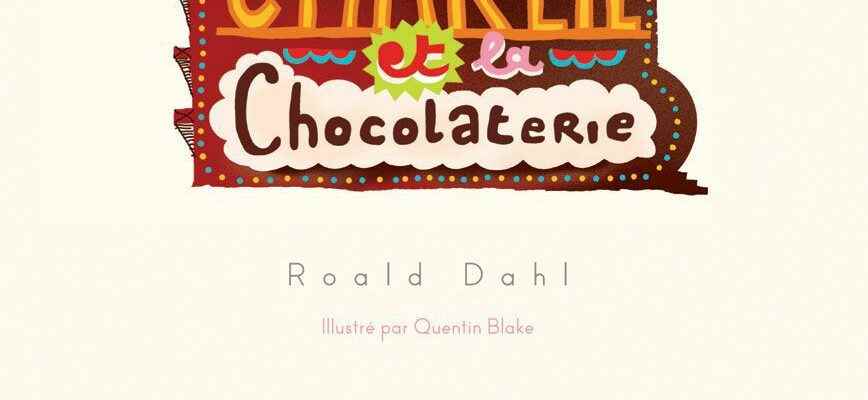Scandal in the country of Willy Wonka. For its 2022 reissue of Roald Dahl’s books, the great British house Puffin has decided – in agreement with its heirs – to rewrite the original texts of the cult author, in order to purge them of terms and references deemed “offensive”. In the mythical Charlie and the chocolate factory (1964), for example, the character of Augustus Gloop is no longer “fat” but “enormous”, and the Oompas-Lumpas populating the kingdom of Wonka have become non-binary (“little men” are now described as “little people”). In the famous Matilda (1988), the main heroine no longer reads Rudyard Kipling… but Jane Austen!
And we could multiply the examples of this suspicious and finicky rewriting, which has since continued to create debate. Until a reaction from the writer Salman Rushdie, icon of freedom of expression, on Twitter : “Roald Dahl was no angel [il se revendiquait antisémite, et fut l’un des pourfendeurs de Rushdie au moment où ce dernier fut frappé d’une fatwa, en 1989, NDLR], but this is nonsense censorship. Puffin Books and Dahl’s heirs should be ashamed.”
The work of Roald Dahl, who enchanted our childhoods with his giant peaches and his chocolate factories, is not the only one, far from it, to be affected by rewrites, for words now deemed offensive, or terms from a bygone era. In 2011, a new translation of Adventures of Huckleberry Finn (1884) by Mark Twain deleted the word “nigger” and replaced it with “slave”. More recently, in 2020, the ten little niggers (1939) by Agatha Christie became, in France, They were ten.
Like the stories of Roald Dahl, the trend primarily concerns children’s literature, which is now sieved for the sake of “inclusiveness”. In 2010, Hachette editions thus “modernized” the Club of Fiveby Enid Blyton, with simplification of vocabulary, deletion of the simple past in favor of the present, introduction of mobile phones and redistribution of lines to prevent Annie, the female character, from crying too often…
An ancient phenomenon
Although it seems to have increased in recent years, the phenomenon is far from unprecedented since the birth of the genre, sometimes dated to the 17th century, with The Adventures of Telemachus of Fénelon (1694) and the Fables de La Fontaine (1668), devoted to the education of the Dauphin, the grandson of Louis XIV. In 1949, a law on publications intended for young people “protects […] against what presents falsehood, laziness, disobedience in a favorable light…”, recalls, in an interview with France InterChristian Bruel, author of The political adventure of the children’s book (The Factory, 2022). The goal: to protect children from foreign comics, especially American ones.
As for the transpositions for children and adolescents of works intended for adults, they have been the object of censorship of a moral, political, religious, etc. order. Marie-Aude Murail, author of children’s literature, remembers an old edition of Three Musketeers, in the years 1960-1970, purged of a love scene between d’Artagnan and Milady, preventing the reader from understanding how the Gascon discovered the mark of infamy on the shoulder of his nemesis. Likewise, in Francis the Champi (1848) by George Sand, the ruinous mistress of a miller became his “friend”, at the risk of emptying the text of its meaning.
Business logic
A permanence that refers to the specificity of the genre. “This is distinguished by the weight of the publisher, underlines Mathilde Lévêque, professor of literature at the Sorbonne Paris-Nord University and specialist in the subject. In the 19th century, Hachette thus intimated to the Countess of Ségur, before publication, to suppress the hugs, spankings and whippings with which she sprinkled her manuscripts”. Above all, the frequency of these rewrites testifies to its dual purpose, “to instruct and entertain”. “The book is the last place where adults can control the cultural practices of youth”, deciphers Marie-Aude Murail, who, from 2019, in a column published by Liberationwarned against the new censorship of “sensitivity readers, these literary misstep detectors”.
For his part, the lawyer Emmanuel Pierrat, author of Censored (Memory Institute for Contemporary Publishing, 2021), defends the removal of racial stereotypes in Dahl’s work, intended for a very young audience. “A child will not read the critical apparatus or the preface. We make so many efforts on social networks to fight against hatred, I do not see how we could endorse them in a book…”
Beyond the moral aim, “the objective is primarily economic”, notes Christophe Rioux, teacher-researcher at Sciences Po and specialist in the creative industries. The aim of the publishers: “to find new outlets by segmenting a world of publishing where we adapt to very different readerships. With the sensitivity readerswe are targeting the segment of young adults (young adults), broader than that of children’s literature in the strict sense”, estimates the academic. And this, even if the modified versions of the Club of Five flopped in France as in Great Britain, to the point that Hachette had to give it up… But the commercial aim is perhaps a three-cushion game: did Netflix not acquire, 2021, the rights to all works by Roald Dahl?
For Christophe Rioux, our country is largely preserved from this “disneylandisation”. “In France, we want to keep this dimension of irreverence, even cruelty”, which often characterizes tales and other stories for children, reassures the professor. Moreover, Gallimard announced a few days ago that France would not be affected by Roald Dahl’s rewrites.
